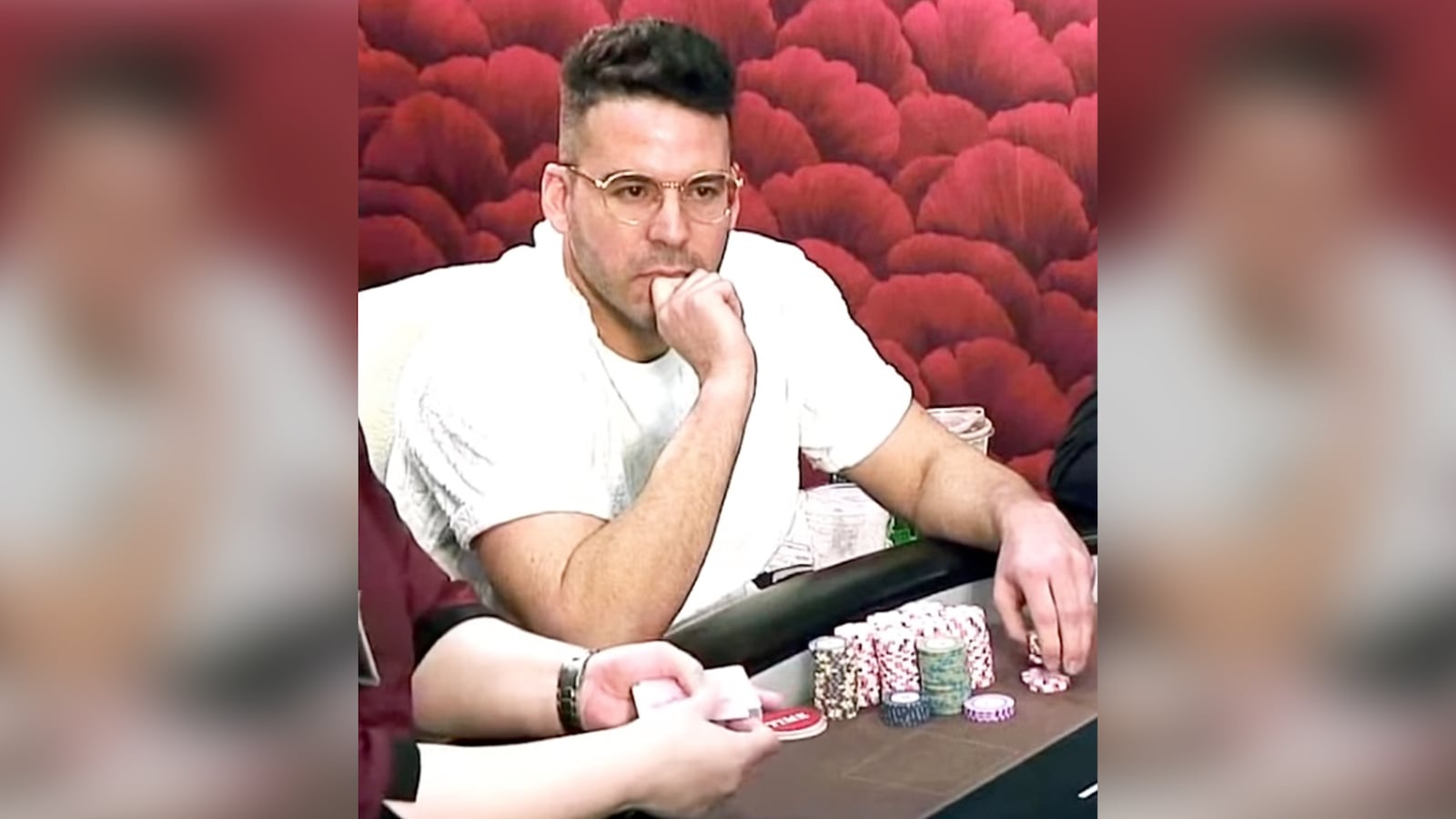A professional card player who has won more than $1.5 million at World Series of Poker events alone has been charged with running an illegal gambling business in his home state of California “involving supplying, operating, and maintaining video slot machines and devices” and laundering the proceeds using chips from a legit casino near his home, according to a newly unsealed federal indictment first obtained by The Daily Beast.
In addition to the gambling charge, Gal Yifrach, 35, also faces one count of conspiracy to commit money laundering.
Yifrach was the subject of an advertorial last year in LA Weekly that described him as “humble and hungry for more success despite his many winnings.”
“He also has a big heart for charity and often donates money to charities across the country to help the less fortunate in society. He believes in helping the needy to create a better world for everyone to have equal opportunities,” it went on. “Gal has now dedicated his next phase of life to inspiring others to be the best versions of themselves. He also wants to enhance his financial freedom through the creation of more passive incomes.”
According to the feds, his “more passive incomes” included unlicensed slot machines in a gambling operation that allegedly got underway in March 2018 and continued through July 2020. He and his three co-defendants, Shalom Ifrah, Nick Shkolnik, and Yosef Yitzchak Beshari, then laundered the dirty cash “to conceal the fact that their income was derived from operating an illegal gambling business,” the indictment states.
One method Yifrach used, according to prosecutors, was to hand cash over to an associate named in the complaint only as “Individual 6,” subsequently receiving corporate checks from two unidentified firms.
Another way Yifrach allegedly cleaned his ill-gotten gains was to trade cash with other people for casino chips that he would then exchange for checks at a legal, licensed casino. He would then deposit the legitimate funds into his bank account, and spend the money on property, the feds say.
To stay one step ahead of law enforcement, Yifrach structured his transactions to keep them below the $10,000 reporting requirement, the indictment alleges.
Investigators monitored Yifrach’s communications, intercepting messages he sent to others involved in the illegal enterprise, according to the filing.
In 2018, Yifrach allegedly discussed swapping $150,000 with “an individual in exchange for casino chips from Casino 1,” the indictment continues. Days later, he in fact swapped just over $200,000 in casino chips for checks from Casino 1.
Yifrach “deposited such casino checks into his bank account and used the funds to purchase real estate,” the indictment says.
(“Casino 1” is located in Bell Gardens, California, according to the indictment, which does not identify it by name. A casino in Bell Gardens agreed to pay $500,000 last November to resolve an investigation into a Chinese national who conducted over $100 million in cash transactions there in 2016, many of them through an assistant. The casino—which did not file any of the Currency Transaction Reports or Suspicious Activity Reports for Casinos in the the Chinese national’s name for transactions involving more than $10,000 as required by the Bank Secrecy Act or BSA—agreed as part of the settlement to “implement additional review and reporting requirements to assure BSA compliance, including an audit by a third party and regular reporting to the U.S. Attorney’s Office.”)
In another series of messages, Yifrach allegedly told an associate that he could “change only ‘10’ in each bank without having a report” made. He then “conducted multiple exchanges at banks where he exchanged exactly $10,000 in smaller bills for larger bills,” the indictment states.
A third example laid out by prosecutors accuses Yifrach of contacting a co-conspirator about “cleaning the cash.”
“Ifrah responded that it would be best to continue registering as an employee of a company and giving cash for checks,” says the indictment.
Beshari, one of Yifrach’s co-defendants, laundered his share of the profits by purchasing a house in North Hollywood, prosecutors allege.
Somewhat ironically, Yifrach owned a laundromat in San Jose until 2019, according to corporate registration records.
In a forfeiture complaint filed last summer, the government indicated it was moving to seize just under $320,000 in cash from Yifrach, along with 4.24975436 in Bitcoin, which is today worth about $174,000.
A personal number listed in public records under Yifrak’s name was not working on Wednesday evening, and a number listed for his business, California Amusement Machine, was out of service.
In an email to The Daily Beast, Yifrach’s lawyer, Stephen Fisch, declined to comment.
If convicted on both counts, he faces a maximum of 25 years in federal prison.






